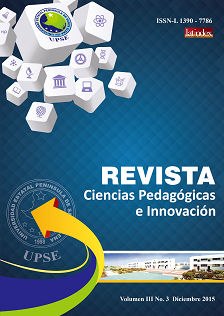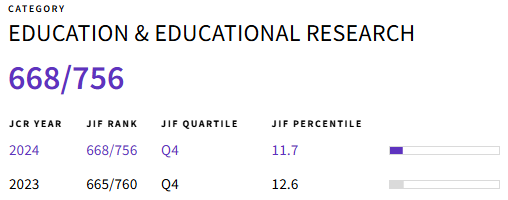Mental health care in the ecuadorian amerindio tradition.
DOI:
https://doi.org/10.26423/rcpi.v3i3.101Keywords:
Indo-Ecuadorian, Amerindian, Interculturalism, Mental Health, PsychologyAbstract
This reflexive essay focuses on the search for the epistemology of the Indo-Ecuadorian ancestryabout mental health care. The desire is to know the southern Amerindian reality from the ancestral perspective, without any western influence. This data will let us see that alter through their knowledge, and not through our vision influenced by colonization, even 500 years later. Literature on mental health in South America since the Amerindian,is poor, and in present literature, a lack of understanding, acceptance, and objectivity has been observed, most of these studies were carried out by foreign investigators in other languages. Such poorness determines that in the historical records there was no correct information, or if there was, it was not complete. Such knowledge must be found before they disappear or before we forget that there were races and ethnicities with knowledge that helped them to survive the vicissitudes of colonization. From the perspective of mental health, only a mentally healthy man could overcome the physical and mental abuse suffered during the conquest. The proposal is to carry out a profound study of understanding on mental health and the techniques used by Indo Americans, especially in Ecuador, in their treatment of mental health to provide science with historical data, not only anecdotal, but also as therapeutic techniques perhaps more powerful that we imagine.
Downloads
References
Azuay. Disponible en: http://es.slideshare.net/ctdipeiba/diccionario-kichwacastellano
De Souza Santos By Exeni Rodríguez JL., editores. Cuando los excluidos tienen derecho: justicia indígena, plurinacionalidad e interculturalidad en Bolivia. Quito: Rosa Luxembur/AbyaYala;2012.
Diccionario de la Lengua Española (DRAE) Disponible en http://lema.rae.es/drae/?val=INTER - CULTURAL. Real Academia Española
Ayala Mora, E. Interculturalidad camino para el Ecuador. Quito, Universidad Andina Simón Bolívar, Seguro Social Campesino / Confederación Nacional de Organizaciones Campesinas, Indígenas y Negras (FENOCIN); 2011
Quijano, Aníbal. Colonialidad del poder, eurocentrismo y América Latina. En libro: La Colonialidad del saber: eurocentrismo y ciencias sociales. Perspectivas Latinoamericanas. Edgardo Lander (comp.) CLACSO, Consejo Latinoamericano de Ciencias Sociales, Buenos Aires, Argentina. Ju - lio de 2000. p. 246. Disponible en la World Wide Web: http://bibliotecavirtual.clacso.org.ar/ar/libros/lander/quijano.rtf
Torralba, R. F. El arte de saber escuchar. España: Editorial Milenio. Retrieved from http://www.ebrary.com. 2009.
Lema Otavalo, L. Los Rituales de la cotidianidad. Revista Yachaikuna. Quito: Instituto Científico de Cultura Indígena, 2001. Disponible en: http://icci.nativeweb.org/yachaikuna/1/
Torre Espinoza C. El racismo en el Ecuador. Centro Andino de acción popular, Consejo Andino de Ciencias Sociales (CLACSO)1996. Disponible en http://bibliotecavirtual.clacso.org.ar/Ecuador/caap/20120928023907/torre.pdf
Aguirre Baztán, .A. Etnografía. Metodología cualitativa en la investigación sociocultural. Mexico DF: Alfaomega. (1995).
Organización Mundial De la Salud. Constitución (2006) http://www.who.int/governance/eb/constitution/es/
Vallejo Samudio, Á. R. Medicina Indígena y Salud Mental.Acta Colombiana de Psicología, (2006). 9(2), 39-46. Retrieved Agosto 15, 2015, from http://www.scielo.org.co/scielo.php?script=sci_arttext&pid=S012391552006000200005&lng=en&tlng=es.
Barriguete Mendez, J.A., Reartes.D, Venegas,R.M; Moro,M. R.. La Salud mental en contextos interculturales. (2003).
Di Fabio,J.l y Rojas Almeida , R. OPS/OMS. Salud de los Pueblos Indígenas de América: Conceptos, Estrategias, Prácticas y desafíos. Tecnología y Prestación de servicios. (2006)
Seguin, C.A. Psiquiatría Folclórica En Manual de Psiquiatría de Rotondo, H. 2da edición Lima, Perú. (2008). http://sisbib.unmsm.edu.pe/bibvirtual/libros/psicologia/manual_psiquiatr%C3%ADa/indice.htm
Campos Navarro, R. Hacia un trabajo intercultural de Salud. Servicio de salud con calidad intercultural para los pueblos amerindios. Recuperado Agosto 15, 2015. From; http://bvs.per.paho org/texcom/cd048358/vision.pdf
Mc. NeilBW, CervantesJM, editores. Latino healing: the integration of ethnic psychology into psychotherapy. New York: Routledge., 2008
Comas-DiazL Women of Color: Integrating Ethnic and Gender Identities in Psychotherapy. New York: The Guilford Press. 1994
Comas Diaz L. Latino healing: the integration of ethnic psychology into psychotherapy; Theory, Research, Practice. American Psychological As - sociation, 2006, Vol. 43, No. 4, 436–453.Disponible en: http://www.socsci.uci.edu/~castellj/clfm/webdocs/Week%209/Recommended/latino%20 healing%20Comas-Diaz.pdf.
Koss-ChioinoJ., Hefner P, editors. Spiritual transformation and healing: anthropological, theological, neuroscientific, and clinical perspectives. Lanham: Altamira Press, 2006
Glass-Coffin. Radical Empathy, Gender, and Shamanic Healing: Examples from Perú en Koss-Chioino J., Hefner P, editors. Spiritual transformation and healing: anthropological, theological, neuroscientific, and clinical perspectives. Lanham,: Altamira Press, 2006. P. 62-77.
CervantesJ M. Mestizo Spirituality: Toward an Integrated Approach to Psychotherapy for Latina/os. Psychotherapy: Theory, Research, Practice, Training. Dic, 2010, 47.(4): 527-539.Disponible en. http://dx.doi.org/10.1037/a0022078
Serrano Jara N. Psicología en La República del Ecuador. En Modesto A. Psicología en las Américas. Sociedad Interamericana de Psicología 1999, p155-178.
LentzC. La construcción de la alteridad cultural como respuesta a la discriminación étnica. Caso de estudio en la Sierra Ecuatoriana. En Guerrero, A. Etnicidades. Flacso, Quito–Ecuador. ILDIS, Fundación Friedrich Ebert 2005, p 201-203
Pavon-Cuellar,D. La psicología mesoamericana: ideas psicológicas, psicopatológicas y psicoterapéuticas en las culturas maya, purépecha y azteca.2013.
Ffericgla J. El alcance de la transmisiónen los chamanismos clásicos. Conferencia de 2010. http://josepmfericgla.org/2012/la-transmision-en-los-chamanismos
Cruza-Gruet MC, Spokane A, León Andrade C, Borja T. Diversity, Hegemony, Poverty, and the emergency of Counselling Psychology in Ecuador .In Gerstein L.H. International handbook of cross-cultural counseling: Cultural assumptions and practices worldwide. California: Sage, 2009, 393-401
Menéndez, E. Modelo hegemónico, Modelo alternativo subordinado, modelo de autoatención. Caracteres estructurales. La antropología Médica. México. Universidad Autónoma Metropolitana. México, 1992. p97-113.
Colloredo Mansfeld, R. La política de llugary los indígenas urbanos en el movimiento indígena del Ecuador: Una ecuación territorial imperfecta En De la Cadena Marisol, “Formaciones de indianidad. Articulaciones raciales, mestizaje y nación en América Latina”.(2008) 347-366. Envión
Favre H. El indigenismo. México: Fondo de Cultura Económica; 1999.
Adorno R. El sujeto colonial y la construcción cultural de la alteridad. Revista de Crítica Literaria Latinoamericana, Año 14, No.28, Historia, Sujeto Social y Discurso Poético en la Colonia 1988: p. 55-68.
García Canclini N. Culturas Híbridas: Estrategias para entrar y salir de la Modernidad. México: Grijalbo, Consejo Nacional Para La Cultura Y Las Artes.1989, p 391.
Downloads
Published
Issue
Section
License
El titular de los derechos de autor de la obra, otorga derechos de uso a los lectores mediante la licencia Creative Commons Atribución-NoComercial-CompartirIgual 4.0 Internacional. Esto permite el acceso gratuito inmediato a la obra y permite a cualquier usuario leer, descargar, copiar, distribuir, imprimir, buscar o vincular a los textos completos de los artículos, rastrearlos para su indexación, pasarlos como datos al software o usarlos para cualquier otro propósito legal.
Cuando la obra es aprobada y aceptada para su publicación, los autores conservan los derechos de autor sin restricciones, cediendo únicamente los derechos de reproducción, distribución para su explotación en formato de papel, así como en cualquier otro soporte magnético, óptico y digital.

















